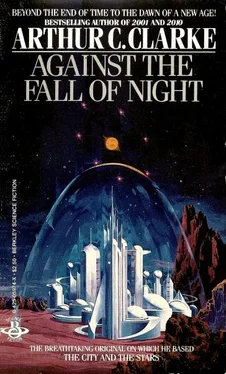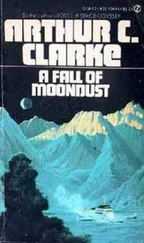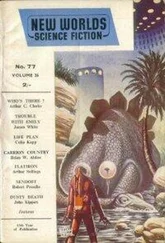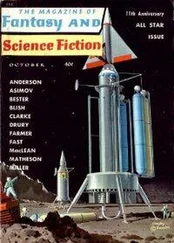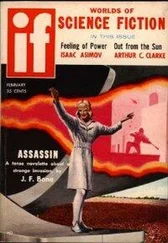Arthur Clarke - Against the Fall of Night
Здесь есть возможность читать онлайн «Arthur Clarke - Against the Fall of Night» весь текст электронной книги совершенно бесплатно (целиком полную версию без сокращений). В некоторых случаях можно слушать аудио, скачать через торрент в формате fb2 и присутствует краткое содержание. Год выпуска: 1948, Издательство: Better Publications, Inc., Жанр: Фантастика и фэнтези, на английском языке. Описание произведения, (предисловие) а так же отзывы посетителей доступны на портале библиотеки ЛибКат.
- Название:Against the Fall of Night
- Автор:
- Издательство:Better Publications, Inc.
- Жанр:
- Год:1948
- ISBN:нет данных
- Рейтинг книги:5 / 5. Голосов: 1
-
Избранное:Добавить в избранное
- Отзывы:
-
Ваша оценка:
- 100
- 1
- 2
- 3
- 4
- 5
Against the Fall of Night: краткое содержание, описание и аннотация
Предлагаем к чтению аннотацию, описание, краткое содержание или предисловие (зависит от того, что написал сам автор книги «Against the Fall of Night»). Если вы не нашли необходимую информацию о книге — напишите в комментариях, мы постараемся отыскать её.
Against the Fall of Night — читать онлайн бесплатно полную книгу (весь текст) целиком
Ниже представлен текст книги, разбитый по страницам. Система сохранения места последней прочитанной страницы, позволяет с удобством читать онлайн бесплатно книгу «Against the Fall of Night», без необходимости каждый раз заново искать на чём Вы остановились. Поставьте закладку, и сможете в любой момент перейти на страницу, на которой закончили чтение.
Интервал:
Закладка:
The name “Seranis” was preceded by a word unfamiliar to Alvin. It somehow conveyed an impression of affection, tempered with respect.
Gerane agreed with the speaker and the party began to move into the village. As they walked, Alvin studied the faces around him. They appeared kindly and intelligent: there were none of the signs of boredom, mental strife, and faded brilliance he might have found in a similar group in his own city. To his broadening mind, it seemed that they possessed all that his own people had lost. When they smiled, which was often, they revealed lines of ivory teeth-the pearls that Man had lost and won and lost again in the long story of evolution.
The people of the village watched with frank curiosity as Alvin followed his guides. He was amazed to see not a few children, who stared at him in grave surprise. No other single fact brought home to him so vividly his remoteness from the world he knew. Diaspar had paid, and paid in full, the price of immortality.
The party halted before the largest building Alvin had yet seen. It stood in the center of the village and from a flagpole on its small circular tower a green pennant floated along the breeze.
All but Gerane dropped behind as he entered the building. Inside it was quiet and cool: sunlight filtering through the translucent walls lit up everything with a soft, restful glow. The floor was smooth and resilient, inlaid with fine mosaics. On the walls, an artist of great ability and power had depicted a set of forest scenes. Mingled with these paintings were other murals which conveyed nothing to Alvin’s mind, yet were attractive and pleasant to look upon. Let into the wall was something he had hardly expected to see-a visiphone receiver, beautifully made, its idle screen filled with a maze of shifting colors.
They walked together up a short circular stairway that led them out on the flat roof of the building. From this point, the entire village was visible, and Alvin could see that it consisted of about a hundred buildings. In the distance the trees opened out into wide meadows: he could see animals in some of the fields but his knowledge of biology was too slight for him to guess at their nature.
In the shadow of the tower, two people were sitting together at a desk, watching him intently. As they rose to greet him, Alvin saw that one was a stately, very handsome woman whose golden hair was shot through with wisps of grey. This, he knew, must be Seranis. Looking into her eyes, he could sense that wisdom and depth of experience he felt when he was with Rorden and, more rarely, with Jeserac.
The other was a boy a little older than himself in appearance, and Alvin needed no second glance to tell that Seranis must be his mother. The clear-cut features were the same, though the eyes held only friendliness and not that almost frightening wisdom. The hair too was different-black instead of gold-but no one could have mistaken the relationship between them.
Feeling a little overawed, Alvin turned to his guide for support-but Gerane had already vanished. Then Seranis smiled, and his nervousness left him.
“Welcome to Lys,” she said. “I am Seranis, and this is my son Theon, who will one day take my place. You are the youngest who has ever come to us from Diaspar: tell me how you found the way.”
Haltingly at first, and then with increasing confidence, Alvin began his story. Theon followed his words eagerly, for Diaspar must have been as strange to him as Lys had been to Alvin. But Seranis, Alvin could see, knew all that he was telling her, and once or twice she asked questions which showed that in some things at least her knowledge went beyond his own. When he had finished there was silence for a while. Then Seranis looked at him and said quietly:
“Why did you come to Lys?”
“I wanted to explore the world,” he replied. “Everyone told me that there was only desert beyond the city, but I wanted to make sure for myself.”
The eyes of Seranis were full of sympathy and even sadness when she spoke again:
“And was that the only reason?”
Alvin hesitated. When he answered, it was not the explorer who spoke, but the boy not long removed from childhood.
“No,” he said slowly, “it wasn’t the only reason, though I did not know until now. I was lonely.”
“Lonely? In Diaspar?”
“Yes,” said Alvin. “I am the only child to be born there for seven thousand years.”
Those wonderful eyes were still upon him, and, looking into their depths, Alvin had the sudden conviction that Seranis could read his mind. Even as the thought came, he saw an expression of amused surprise pass across her face-and knew that his guess had been correct. Once both men and machines had possessed this power, and the unchanging machines could still read their masters’ orders. But in Diaspar, Man himself had lost the gift he had given to his slaves.
Rather quickly, Seranis broke into his thoughts.
“If you are looking for life,” she said, “your search has ended. Apart from Diaspar, there is only desert beyond our mountains.”
It was strange that Alvin, who had questioned accepted beliefs so often before, did not doubt the words of Seranis. His only reaction was one of sadness that all his teaching had been so nearly true.
“Tell me something about Lys,” he asked. “Why have you been cut off from Diaspar for so long, when you know all about us?”
Seranis smiled at his question.
“It’s not easy to answer that in a few words, but I’ll do my best.
“Because you have lived in Diaspar all your life, you have come to think of Man as a city dweller. That isn’t true, Alvin. Since the machines gave us freedom, there has always been a rivalry between two different types of civilization. In the Dawn Ages there were thousands of cities, but a large part of mankind lived in communities like this village of ours.
“We have no records of the founding of Lys, but we know that our remote ancestors disliked city life intensely and would have nothing to do with it. In spite of swift and universal transport, they kept themselves largely apart from the rest of the world and developed an independent culture which was one of the highest the race had ever known.
“Through the ages, as we advanced along our different roads, the gulf between Lys and the cities widened. It was bridged only in times of great crisis: we know that when the Moon was falling, its destruction was planned and carried out by the scientists of Lys. So too was the defense of Earth against the Invaders, whom we held at the Battle of Shalmirane.
“That great ordeal exhausted mankind: one by one the cities died and the desert rolled over them. As the population fell, humanity began the migration which was to make Diaspar the last and greatest of all cities.
“Most of these changes passed us by, but we had our own battle to fight-the battle against the desert. The natural barrier of the mountains was not enough, and many thousands of years passed before we had made our land secure. Far beneath Lys are machines which will give us water as long as the world remains, for the old oceans are still there, miles down in the Earth’s crust.
“That, very briefly, is our history. You will see that even in the Dawn Ages we had little to do with the cities, though their people often came into our land. We never hindered them, for many of our greatest men came from Outside, but when the cities were dying we did not wish to be involved in their downfall. With the ending of air transport, there was only one way into Lys-the carrier system from Diaspar. Four hundred million years ago that was closed by mutual agreement. But we have remembered Diaspar, and I do not know why you have forgotten Lys.”
Seranis smiled, a little wryly.
“Diaspar has surprised us. We expected it to go the way of all other cities, but instead it has achieved a stable culture that may last as long as Earth. It is not a culture we admire, yet we are glad that those who wish to escape have been able to do so. More than you might think have made the journey, and they have almost all been outstanding men.”
Читать дальшеИнтервал:
Закладка:
Похожие книги на «Against the Fall of Night»
Представляем Вашему вниманию похожие книги на «Against the Fall of Night» списком для выбора. Мы отобрали схожую по названию и смыслу литературу в надежде предоставить читателям больше вариантов отыскать новые, интересные, ещё непрочитанные произведения.
Обсуждение, отзывы о книге «Against the Fall of Night» и просто собственные мнения читателей. Оставьте ваши комментарии, напишите, что Вы думаете о произведении, его смысле или главных героях. Укажите что конкретно понравилось, а что нет, и почему Вы так считаете.
